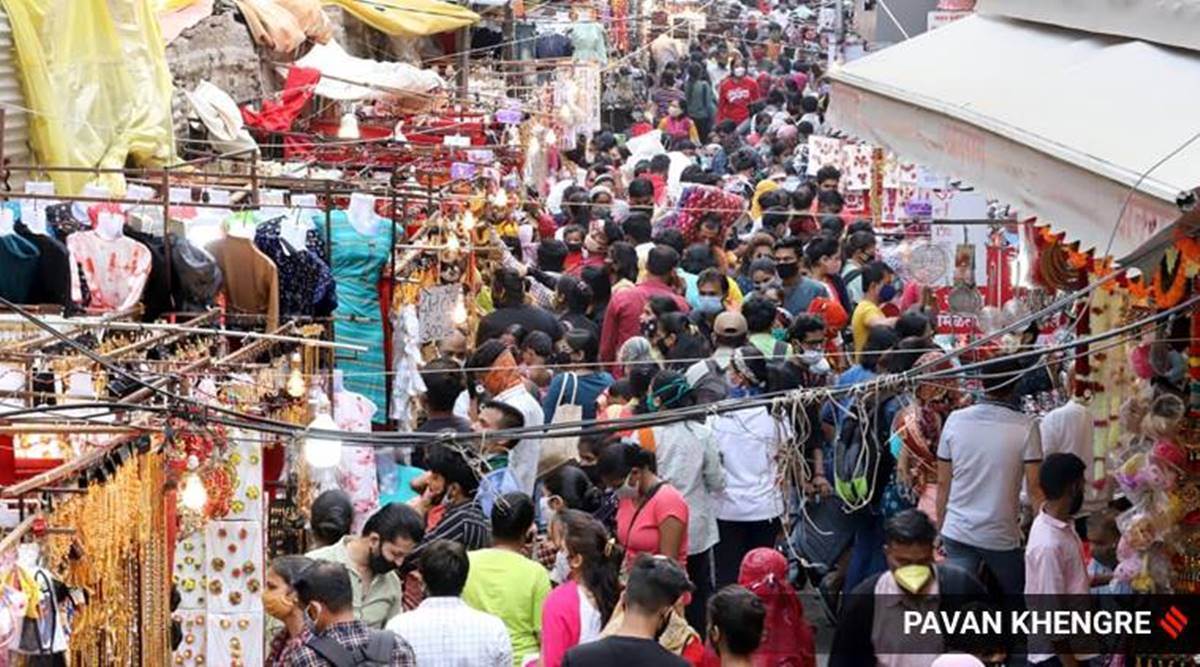
Updated: November 20, 2020 10:45:30 am
 The level of protective antibodies in infected people also varied from one individual to another.
The level of protective antibodies in infected people also varied from one individual to another.
In a one-of-a-kind finding in any city in India, a new study conducted in Pune has revealed that about 85 percent of people who had been found infected with coronavirus in a previous serosurvey had developed protective antibodies. In fact, they had acquired immunity against the disease.
The latest finding is the result of a follow-up study conducted in five prabhags (comprising three or four municipal districts each) in Pune, where a serosurvey conducted earlier this year in July and August found that, on average , about 51 percent of the people had been infected with the virus.
Serological surveys, such as those carried out in several other cities as well, estimate the extent of the spread of the disease by detecting antibodies among surveyed population groups. However, the presence of antibodies only indicates that the person had been infected with the disease at some point. It does not mean that the infected person has also acquired immunity against the disease. Immunity occurs only if the infected person develops what are called “neutralizing” or “protective” antibodies, a small subset of antibodies.
This is the first study to follow a previous serosurvey to detect the presence of “neutralizing” antibodies in infected people. And while the researchers who conducted the study are careful not to suggest that the city was approaching ‘herd immunity’, this is the first documented case in the country where the infection rate in a population group had risen so much that the concept of herd immunity may already be working.
 Pune has so far reported 3.44 lakh of confirmed cases of coronavirus infections, the third highest of any city, after Delhi and Bengaluru.
Pune has so far reported 3.44 lakh of confirmed cases of coronavirus infections, the third highest of any city, after Delhi and Bengaluru.
This is also supported by the fact that in Lohianagar, the prabhag with the highest prevalence of disease detected in the serosurvey, the incidence rate has dropped dramatically in the last three months. This indicates that there may be protection at the population level against the disease.
“I don’t think we can still say that Pune has achieved, or is achieving, herd immunity. But the study is important because it shows that wherever there was high seropositivity, the incidence rate has subsequently decreased, “said Dr. Gagandeep Kang, one of the co-authors of the study whose preprint was published Thursday. The study has yet to be peer-reviewed.
READ | Covid Cases Likely To Increase In Pune After Diwali, Doctors Warn
However, Kang added, “Pune residents should not relax or lower their guard, and fill up on market venues as we have seen in Delhi. If people don’t protect themselves, a second wave in Pune cannot be ruled out. A lot of control is in our own hands, and a lot depends on how people behave. “
The level of protective antibodies in infected people also varied from one individual to another. “About 85 percent of infected people have shown a detectable amount of neutralizing antibodies. Of this, about 50 percent had high levels of neutralizing antibodies, ”said Professor Aurnab Ghose, the study’s principal investigator.
“We have discovered that there is a close association: low incidence of new diseases in areas of high seroprevalence and vice versa. These are early observations, but may be an indication of population-level protection against Covid-19, at least in the short term, ”he said.
Explained | What is herd immunity?
So far, Pune has reported 3.44 lakh of confirmed cases of coronavirus infections, the third highest for any city, after Delhi and Bengaluru. These are the people who were tested and tested positive. The city has also recorded more than 7,200 coronavirus-related deaths, the highest after Mumbai and Delhi.
Serosurveys estimate the highest prevalence rate, because not all infected people show symptoms and are tested.
Epidemiologist Jacob John, another co-author of the study, said that if the current level of public behavior continued, a second wave, like the one the United States and some European countries are experiencing in Pune, was unlikely to occur.
“Serology suggests that sporadic cases may occur in these populations, but another wave is unlikely to occur. However, the entire city of Pune will not behave uniformly. We will have pockets of susceptibility, but it is to be expected that the city as a whole will behave differently from Europe and the United States due to this high seroprevalence ”, he said.
.